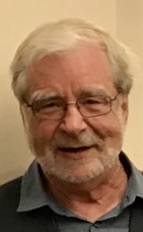Trump’s People and the Climate of Justice
- Marvin T. Brown

- Feb 13, 2024
- 4 min read
Updated: Feb 13, 2024

We know more about Trump’s people then what we can glean from Jan 6. They have been around for a long time striving to prevent changes in our national climate of injustice. Their historical roots belong to the “Lost Cause” story after Reconstruction, which emphasized that even though white Southerners had lost the war, their “cause” was more noble than that of the Federal invaders. They rose again as a backlash to the liberation movements of the 1960s. Their current themes revolve around the threats they see to their America by so called “elites,” people of color, immigrants, and progressives. They believe Trump can save America as a bastion of freedom, or at least block infringements on their freedom.
You must wonder why some people seem more comfortable in a climate of injustice than in a climate of justice. It’s true, justice always refers to relations, and assumes some bonds among individuals. Freedom, on the other hand, can be seen as non-relational, but even with this one-sided view of freedom, Trump would still have a people—a people of individuals.
The word “people” is ambiguous. One reads “We the people of the United States” at the beginning of our Constitution (even though 40% of Virginia’s population were enslaved) and Abraham Lincoln concludes his Gettysburg Address, with the words: “government of the people, by the people, and for the people, shall not perish from the Earth.” It seems to me that his hope has not been extinguished, but neither has it been fulfilled. We are a nation and an empire of peoples, not of a people.
Still, the principle, if not the reality, of democracy is that political power resides in the people. “Power to the People.” The Latin American philosopher, Enrique Dussel, has given us a way to talk about people and power. Dussel died in November last year at the age of 88. For decades, he had been a leading Latin American philosopher. Born in Argentina, he escaped to Mexico during the Argentinian dictatorship. He is one of the founders of the philosophy of liberation, and has written many books and articles, including The Ethics of Liberation.
Political power, as Dussel defines it, has two dimensions. The first is people power, which he calls, potentia, which is power that emerges from communal consensus. The actualization of this communal power depends on its delegation or institutionalizing, which Dussel call potestas power: the power of the representative. Here it gets tricky. Representatives can either remain obedient to the community—their power source—or take the communal power for themselves. Instead of serving the people, they dominate them. In such cases, as Dussel says:
The fundamental link between potestas (the power that must be exercised through delegation), and potential (the power of the people itself) is broken, and the former is thereby absolutized, claiming itself as a self-reflective and self-referential foundation.
Here, the power relation has been inverted. Instead of the delegate following the people, the people follow the delegate. Doesn’t this fit Trump and his people to a tee? As Trump has repeatedly said, he could stand in the middle of Fifth Avenue and shoot somebody and not lose any voters. Once a people’s power has been stolen from them, it follows that Trump’s enemies become their enemies, and democracy loses its validity. They have put their faith in Trump rather than in democratic institutions.
As we hinted earlier, not all “people” are the same, and Trump’s people are certainly not what Dussel had in mind when writing his ethics and politics of liberation.
Dussel’s first fact, which he takes from neurobiology, is that humans will to live and to live in a community. Therefore, human communities will to get those things they need to survive. From this fact, Dussel proposes a “material ethics.” Instead of freedom or recognition, he proposes that we begin our thinking with human needs—the people’s material conditions. Dussel writes:
The clearest and most definitive point of departure for the entire framework of criticism that I have developed is the relationship produced between the negation of the corporality, the bodily reality (Leiblichkeit) reflected in the suffering of the victims, of all those dominated (as workers, indigenous people, African slaves, or exploited Asians in the colonized world; as the bodily reality of women, of those who are not white, of the few generations who will suffer the effects of ecological destruction: allf the elderly without a place in a consumer society, children abandoned in the streets, all those excluded because they are foreigners, immigrants, or refugees, etc.), and the process by which the victims become conscious of this negation. (Ethics of Liberation, p. 215).
For Dussel, the aim of philosophy, as Karl Marx said, is not just to understand the world, but to change it. To negate the negations of the lives of victims, such as negating the negative of hunger by providing access to food, gives them the capacity (the power) to change the world.
Does that sound like Trump’s people? Are their material conditions like the poor, the homeless, the hungry, or the refugee? If not, are they helping victims gain resources to liberate themselves? Or, are they blocking any advancement toward a climate of justice?
Trump’s people have always been part of our history. I don’t know if they will learn that there are causes—from multicultural education to environmental protection—that they could help us win. My guess is that movements toward a climate of justice must happen without them.

Beautiful summary of a complex analysis. Thanks for stimulating us in an ongoing conversation about our role in an ongoing conversation about civic engagement.in a climate of justice..